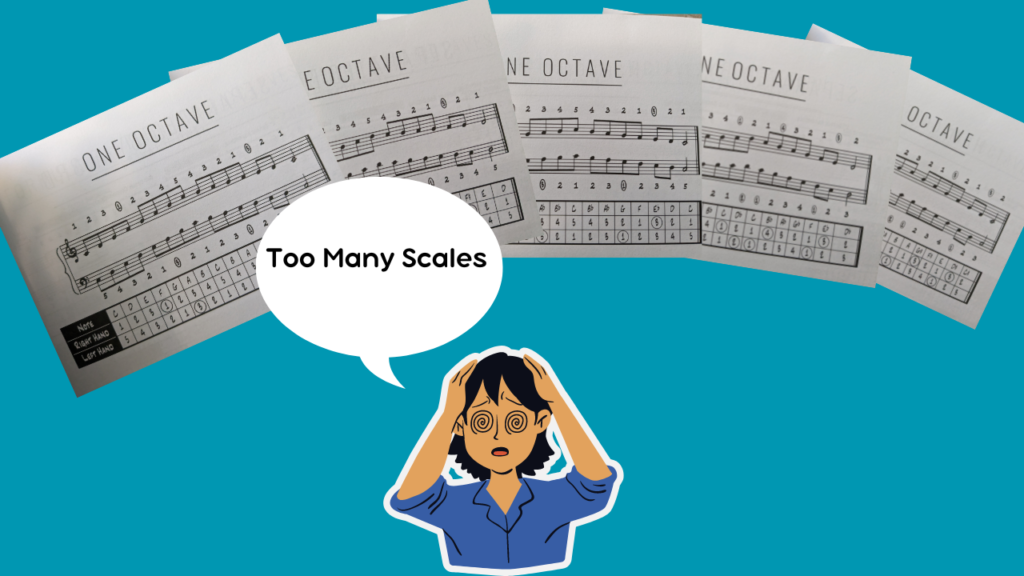This post contains affiliate links.
With 24 major and minor scales, plus their modes and variations, it’s overwhelming for a beginner who wants to learn some scales. That raises the obvious question: must you learn all piano scales? Is it good enough to remember the more common ones and leave it at that? Or are there benefits to learning everything?

Learning common pop scales is good enough if you’re only interested in pop music. However, learning and memorizing all piano scales can help significantly with learning jazz and classical and improving your techniques.
In this article, I’ll discuss the pros and cons of not learning vs learning all piano scales so you can decide based on your goals.
Why you don’t need to learn all piano scales
Learn the more common scales instead
Pop music usually only uses a few common scales like C Major and G Major, along with their relative minors, A minor and E minor. Mastering these scales is good enough if you only want to learn to play your favorite pop songs on the piano.
It’s boring and repetitive
Ask any piano player about practicing scales, and many will tell you that learning scales isn’t the most fun activity to do on the piano. It isn’t exciting to go up and down the scales all the time. So if you don’t feel motivated to learn all scales, you don’t have to force yourself to spend all your time learning scales.
A better way to do this is to pick a couple of scales to learn and practice to improve your techniques, then gradually learn the rest as you encounter them in different piano pieces. Try other exercises with scales like Hanon to keep things interesting.
Knowing that learning all scales is unnecessary, you may wonder if you need to learn scales AT ALL to learn the piano. You can find the answer in this article Can You Learn the Piano Without Knowing Scales?
Why you should learn all piano scales
Help with playing jazz
The ability to improvise on the spot is essential for jazz. And you can only improvise well by knowing the scales inside out, as jazz is built upon scales.

Knowing as many scales and their modes and variations as possible gives you more options on what to play on the spot. This will help you become a more creative piano player.
It makes learning new piano pieces easy
The more scales you know, the easier it is to learn new piano pieces. This is because you can quickly identify any familiar scales and their chords, arpeggios, etc, that show up in a piece. This is much faster and easier than learning the piece note by note.
So if you know every scale, learning a new piece will be a breeze. Or at least that knowledge will help tremendously. Of course, after learning a new scale, remember to practice it so you can memorize it.
Now that you know the benefits of learning all scales and want to do so, check out this article for the complete order for learning scales – which scale to learn first and last.

